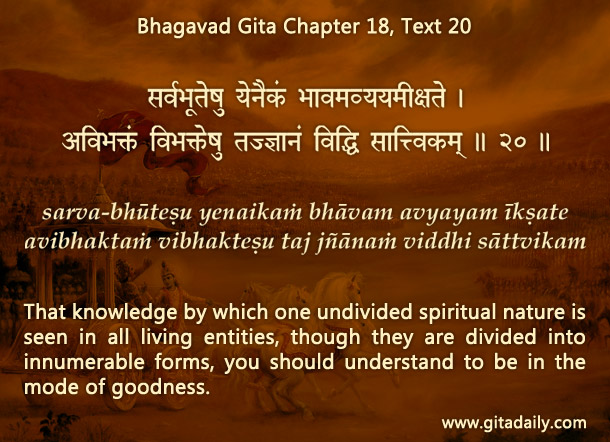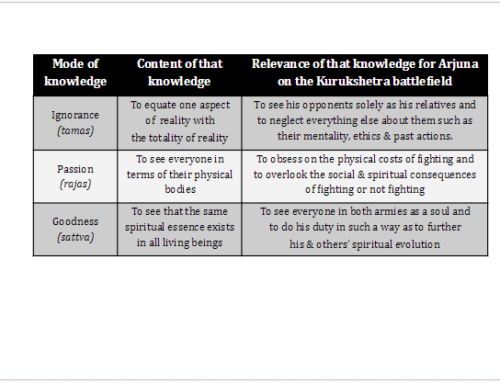Differences are often the cause of conflicts. Wanting to avoid such conflicts, some people try to wish away the differences by claiming that we are all one.
While their desire for unity is laudable, just blinding ourselves to the differences can’t establish sustainable unity. After all, we are all irreducibly individuals – materially, there are real and undeniable differences among each other.
As long as we are in passion, the otherness of people will always seem the actual truth, no matter how much our protestations of oneness.
The way to finding unity amidst differences is not by diminishing our vision but expanding it – not by blinding ourselves to differences, but by getting the eyes to see beyond them. When we learn to see life’s spiritual side, then we see that at our core we are all alike – we are all souls. The Bhagavad-gita (18.20) states that knowledge in the mode of goodness focuses on this common spiritual essence. In contrast, knowledge in the mode of passion (18.21) focuses on seeing the different externals of others and ascribing these differences to different internals. This implies that as long as we are in the mode of passion, our efforts for unity won’t work for long as whatever similarities we see will remain cosmetic. Why? Because our interests will fundamentally be at loggerheads – we will desire and compete for external things which being finite will never be enough to satisfy the insatiable desires that characterize the mode of passion. As long as we are in passion, the otherness of people will always seem the actual truth, no matter how much our protestations of oneness.
But when we individually and socially cultivate the mode of goodness, then we will see our common spiritual interests, realizing that we all can gain higher enrichment by linking lovingly with the divine and with each other under the divine. That vision of spiritual unity is the foundation of sustainable social unity.
Explanation of article:

Podcast:



A beautiful gem of proper (higher knowledge) explained in a simple yet thought-provoking manner. Thank you and Hare Krishna!